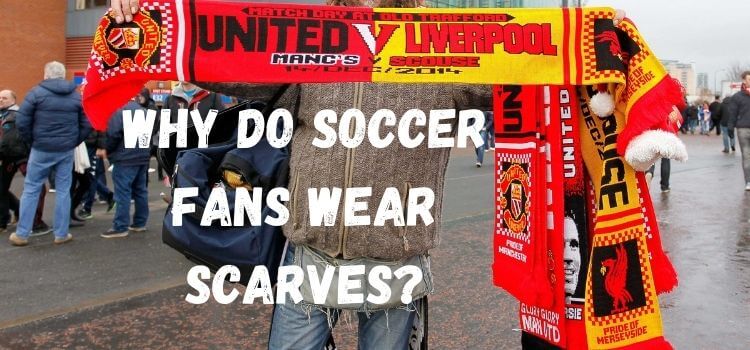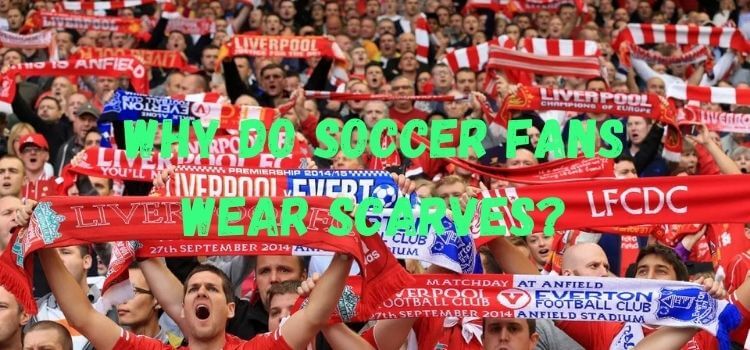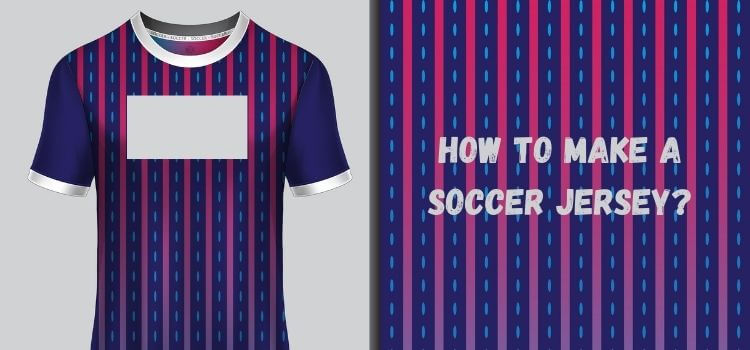As an Amazon Associate, I earn from qualifying purchases
More than just a game, soccer—as it’s called in most of the world—is a cultural phenomenon that brings people from all walks of life together. The soccer scarf is one iconic accessory among the sea of passionate fans cheering in stadiums worldwide. But why do soccer fans wear scarves? Let’s delve into the rich tapestry of history, tradition, symbolism, and practicality behind this beloved fan accessory.

Introduction of Soccer Scarf
Soccer matches are not just about the action on the pitch but also about the atmosphere created by the fans. The soccer scarf is at the heart of this vibrant atmosphere, symbolizing allegiance, passion, and camaraderie.
History of Soccer Scarves
The tradition of wearing scarves at soccer matches dates back to the early 20th century in the United Kingdom. Fans wore scarves in the beginning to stay warm on frigid matchdays. Over time, they became intertwined with club culture and supporter identity.
Symbolism and Tradition
Representing Club Loyalty
Soccer scarves are often decorated with team colours, logos, and mottos, representing loyalty to a particular club. For fans, wearing their team’s scarf is a way to show unwavering support, rain or shine.
Showing National Pride
In addition to club scarves, national team scarves are popular among fans during international competitions like the FIFA World Cup. These scarves become symbols of national pride, uniting fans behind their country’s team.
Practicality
Keeping Warm
While the primary purpose of soccer scarves may have been practicality, their significance goes beyond mere insulation. They provide comfort during cold matches, allowing fans to stay warm while cheering for their team.
Identity and Community
Soccer scarves serve as identifiers within the vast sea of supporters, fostering a sense of belonging and community among fans. They create a visual spectacle in stadiums, showcasing the diverse tapestry of supporters united by their love for the game.
Fashion Statement
Variety of Designs
Soccer scarves come in many designs, from classic striped patterns to elaborate motifs. Fans often collect scarves as souvenirs, each representing a cherished memory or match attended.
Collector’s Items
Specific scarves gain cult status among fans and become sought-after collector’s items. Scarves commemorating historic victories or featuring limited edition designs can fetch high prices in the collector’s market.
Cultural Significance
Soccer Chants and Atmosphere
Soccer scarves are often wielded as props during spirited chants and songs, adding to the electric atmosphere inside stadiums. They amplify the collective voice of fans, creating an unforgettable auditory experience.
Global Phenomenon
The tradition of wearing soccer scarves transcends borders and cultures, making it a global phenomenon. From the fervent supporters of English Premier League clubs to the passionate ultras of South American teams, soccer scarves are a common sight in stadiums worldwide.

Social Connection
Building Camaraderie
Sharing a scarf with fellow fans fosters connections and friendships beyond the stadium. It’s a tangible symbol of shared experiences and mutual passion for the beautiful game.
Bonding Experience
For many fans, attending a soccer match is a bonding experience with friends and family. Wearing matching scarves amplifies this sense of unity, creating memories that last a lifetime.
Influence of Ultras and Supporters Groups
Ultras and supporter groups play a significant role in shaping soccer scarf culture. To enhance the spectacle and passion of matchdays, they create intricate tifos and well-executed shows with scarves.
Celebrating Victories and Memories
Soccer scarves become mementoes of memorable victories and unforgettable moments in a team’s history. They serve as reminders of the highs and lows experienced alongside fellow fans.
Impact on Players and Teams
The sight of fans waving scarves in the stands can inspire players and teams to perform at their best. It’s a visual manifestation of support that can boost morale and drive players to give their all on the pitch.
Controversies and Bans
Despite their widespread popularity, soccer scarves have occasionally courted controversy. Some clubs have banned specific scarves due to their association with hooliganism or political messaging.
Evolution of Soccer Scarf Culture
Over the years, soccer scarf culture has evolved, adapting to changing trends and fan preferences. From traditional wool scarves to modern polyester designs, scarves remain a staple accessory for fans worldwide.
Future Trends
The custom of wearing scarves will evolve with soccer. Fans can expect innovative designs and collaborations that reflect the sport’s ever-changing landscape.
Conclusion: Soccer Fans Wear Scarves
In conclusion, soccer scarves are more than just pieces of fabric; they’re symbols of passion, unity, and tradition. Whether fans wear them to keep warm, show loyalty to a team, or celebrate shared experiences, soccer scarves play an integral role in the vibrant tapestry of fan culture.
FAQs (Frequently Asked Questions)
Although soccer scarves are most frequently seen at games, many supporters don them outside of arenas, particularly on game days or special occasions.
While technically possible, wearing a scarf from a rival team might not be well-received among fellow fans and could lead to some friendly banter or teasing.
Some fans believe that waving a scarf during certain moments of a match can bring good luck to their team, but it’s mostly a fun superstition rather than a profound belief.
While caring for your scarf according to the manufacturer’s directions is crucial, hand washing and air drying it in cool water are usually recommended to preserve its quality.
Many companies offer custom scarf printing services, allowing fans to create unique designs featuring their favourite team or personal messages.
Read Our More Articles
- Is Soccer Mommy Gay? Debunking Myths and Embracing Diversity
- What is a Soccer Mom Outfit? A Guide to Making a Statement
- What is a Soccer Kit and How to Get Started
As an Amazon Associate, I earn from qualifying purchases


